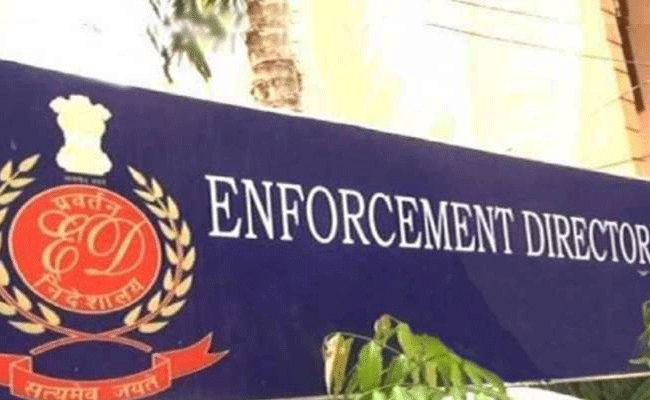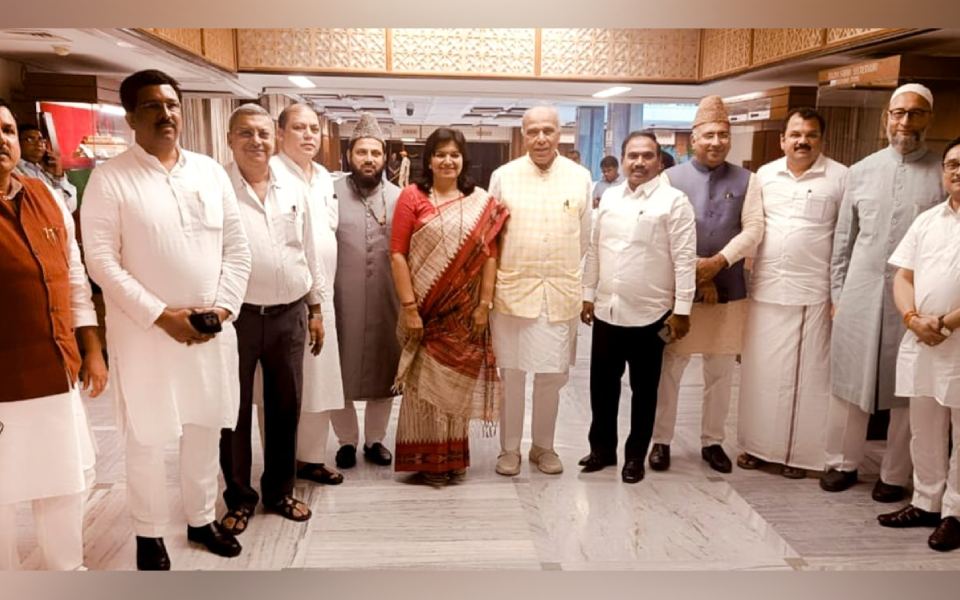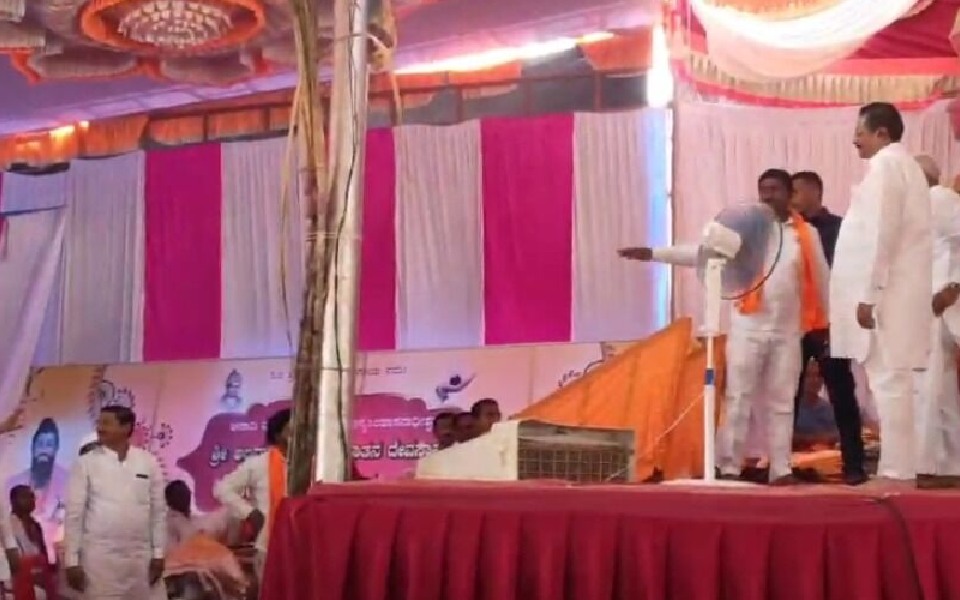New Delhi (PTI): The Enforcement Directorate on Thursday said it has arrested a man in connection with its ongoing money laundering probe against a Bengaluru-based cooperative bank which is alleged to have misappropriated public funds to the tune of more than Rs 1,000 crore.
Rajesh VR has been taken into custody in the case of Sri Guru Raghavendra Sahakara Bank Niyamitha.
"He is the major beneficiary of the fund siphoned off from the bank in connivance with the management of the bank," the ED said in a statement.
The agency, last year in February, had arrested the president of this co-op bank, K Ramakrishna.
Speaking about the role of Rajesh VR, the ED said "according to the RBI's inspection report, he availed loans of Rs 40.40 crore from the bank and has not repaid the same."
"It is also noticed during investigation that there are multiple FIRs against Rajesh VR and his wife in case of public frauds committed by them in other cooperative banks/societies also. Hence, they are habitual offenders," the ED alleged.
The ED case, filed under the criminal sections of the Prevention of Money Laundering Act (PMLA) in February 2020, stems from a Bengaluru Police FIR filed under various sections of the Indian Penal Code and that of the Karnataka Protection of Interest Depositors in Financial Establishments Act of 2004 against the lender and others.
"The bank promised to give higher interest rate to the depositors which was not in line with the prevailing market rate."
"The bank officers created fictitious loan accounts and transferred the money to these accounts (without proper scrutiny of the loans) which in turn was transferred to overdue loan accounts for evergreening purposes to show strong financial health of the bank," the ED alleged.
Assets worth Rs 45.32 crore have been attached by the agency in this case earlier.
Let the Truth be known. If you read VB and like VB, please be a VB Supporter and Help us deliver the Truth to one and all.
Bhubaneswar, Nov 11: The Joint Parliamentary Committee (JPC) on the Waqf (Amendment) Bill, 2024 has postponed its study tour to Kolkata Patna, and Lucknow as many of its members are busy in elections, the panel chief said on Monday.
The JPC has completed its first phase of study tour to states like Karnataka, Telangana, Tamil Nadu, Maharashtra, and Gujarat to hear the versions of stakeholders on the Waqf Amendment Bill.
Opposition members boycotted the second phase tour, which started on November 9 and was scheduled to end on November 14. The panel held its meetings at Guwahati on Saturday and here on Monday.
“Many of my colleagues informed us that they have engagements in state elections in Maharashtra and Jharkhand. Besides, by-polls are there in many states. So, they were not able to attend the meeting. On their request, I have decided to postpone the study tour,” JPC's Chairman Jagdambika Pal said here.
He said the study tour to Kolkata, Patna, and Lucknow will be rescheduled.
“We wish that all members of the panel should participate in the deliberations,” he added.
He said that the JPC had a ‘very successful’ meeting in Bhubaneswar on Monday and also in Guwahati two days ago.
During the day, the JPC held discussions with representatives from the Odisha government, state minority commission, state Waqf board, senior advocates, social activists and other stakeholders from the state for more than eight hours, Pal said.
"The stakeholders have given their views and opinions on the proposed Waqf (Amendment) Bill, 2024. Our Joint Parliamentary Committee will examine the views and incorporate the contents in its report", he told media persons earlier in the day.
Pal said it is the responsibility of the JPC to hear the stakeholders of Odisha and it is doing so.
"Whether someone has joined or not, it doesn't make any difference," he said when asked about the absence of the opposition members in the meeting.
The committee will submit its report to the Lok Sabha Speaker by the last working day of the upcoming winter session of the Parliament, he said.
The opposition members of the JPC had decided to boycott this tour, alleging that the chairperson was acting arbitrarily and their request to defer the trip was unheeded.
Since the formation of the JPC in August this year, the panel has held discussions with different stakeholders for over 100 hours in 25 formal sittings in New Delhi only, said Dilip Saikia, a member of the JPC.
"We have taken views and suggestions from different stakeholders including waqf boards, minority commissions and Muslim institutions/organisations," he said.
The MP said the panel has completed the first phase of the tour to various states including Karnataka, Telangana, Maharashtra, and Gujarat. However, the opposition members have boycotted the second phase tour starting from Guwahati on Saturday, which is "unfortunate", Saikia said.
"The waqf boards need to be accountable for proper management of its properties, to empower the poor Muslims and to give its benefits to marginal sections of society," he said.
Another member of the panel, Aparajita Sarangi, said, "About 38 lakh acres of land is under the control of Waqf boards in India. We need to rectify the governance system and administration."
Sarangi, the Bhubaneswar MP, said that representatives from 16 organisations have participated in today’s meeting. Many individuals have also submitted their views before the panel.
Prior to Bhubaneswar, the panel visited other major cities, including Mumbai, Ahmedabad, Chennai, Hyderabad, Bangalore and Guwahati, where discussions covered a range of issues surrounding Waqf property management and proposed amendments to the Wakf Act, 1995.





